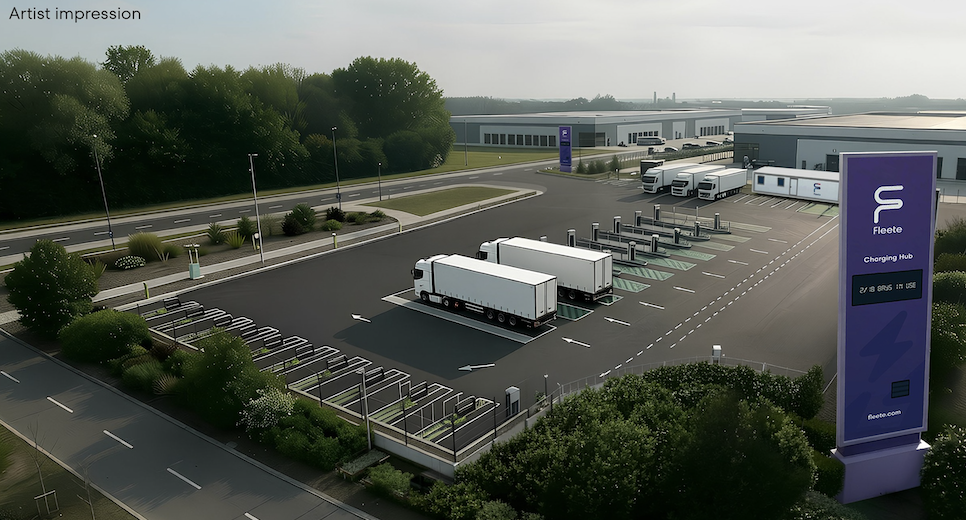The logistics industry is under significant pressure during the coronavirus pandemic, both in terms of keeping the UK supplied with goods to function, as well as coping with the disruption to staffing levels caused by sickness and self-isolation. As such, the FTA has called for a short-term delay to changes to legislation that impact the industry
During the coronavirus pandemic, the logistics industry is facing unprecedented challenges, both in terms of keeping the UK supplied with all the goods it needs to function, as well as coping with the increased disruption to staffing levels caused by sickness and self-isolation and concerns about the viability of their businesses.
With this in mind, the FTA is calling on the government to seek an extension to the current transition period for leaving the European Union, as well as suspend other planned domestic legislation which will impact the logistics sector. This is because “effective implementation” of any new legislation will be impossible in the short term, while the sector is focused on responding to the pandemic.
“This is not about the relative merits of Brexit, or any trading arrangements which our industry will need to adopt,” explains Elizabeth de Jong, policy director at FTA. “This is purely and simply so the businesses tasked with keeping the UK’s supply chain intact can concentrate on the serious issues which the COVID-19 pandemic is placing on the industry.
“Our first priority is always to deliver for our customers, and there is simply not enough capacity available to plan the major structural changes needed to implement a successful departure from the EU, as well as the myriad of other planned legislation changes on the horizon, as well as dealing with unprecedented pressures caused by COVID-19.”
In addition to requesting an extension to the Brexit transition period, FTA is also asking ministers to consider suspending the implementation of other legislation which will affect logistics operators in the short term. This includes the expansion of the London-wide Low Emission Zone for HGVs and the London Direct Vision Standard due to take effect from October this year, as well as the start of other Clean Air Zones around the country, in areas including Birmingham and Leeds.
“All this new legislation, and new trading arrangements, need careful planning and implementation in normal circumstances. But it is clear they would bring major change to our sector at a time when we are fully committed to overcoming the challenges which COVID-19 presents,” continues de Jong.
“In addition to the administrative, practical and financial difficulties experienced by our sector, the pandemic will undoubtedly have a significant impact on supplies of new equipment, technology and vehicles in the coming months, as well as the industry’s ability to recruit and train new staff. Add in the challenge of adapting to new trading arrangements with the EU – which are yet to be formalised – and the situation is placing logistics under huge and unnecessary pressures.”
Logistics is a flexible industry, the FTA says, but there is not the capacity for planning and delivery of new legislation at present within the system. “COVID-19 has created a once-in-a-lifetime emergency situation which needs the full attention of the whole sector – adding in a host of new legislation would place untold, unnecessary pressure on a supply chain that is already stretched. Our industry needs the support of government, not to be broken by it,” adds de Jong.
Thinking about the drivers
Giving drivers the ability to effectively hand wash is crucial in these times. As such, three business groups representing transport sector workers – FTA, RHA and Unite – have urged that adequate hygiene facilities, including hot and cold running water, are available to all drivers collecting from business premises.
In a joint statement, David Wells FTA, Richard Burnett RHA, and Adrian Jones UNITE have reinforced the legal obligations of businesses to employees and visitors, urging them to ensure that the facilities on offer to visiting workers comply with the legal requirements.
“Government advice during this crisis is to wash hands thoroughly and often”, they said. “Since 2017 delivery drivers have had the legal right to use toilets and washrooms in commercial premises yet we are still receiving reports that access to these facilities is denied.
“Logistics is delivering vital supplies across the economy, but drivers are being denied the ability to comply with the government’s primary advice to avoid the spread of COVID-19. On behalf of such a key industry, we demand that those relying on logistics to keep their businesses operating comply with the legal requirements laid down by public health authorities.
“Drivers are the backbone of the UK’s supply chain and must be protected at all costs. It is vital that all sectors of the economy recognise this and ensure hygiene facilities are available where and whenever they are needed. The health and wellbeing of the nation depends on it.”
In 2017, the Health and Safety Executive re-examined the Workplace (Health, Safety and Welfare) Regulations 1992, in particular Regulations 20 and 21 which state that suitable and sufficient sanitary conveniences and washing facilities shall be provided at readily accessible places and that hot and cold water must be available to use. HSE’s guidance clearly states that drivers must have access to welfare facilities in the premises they visit as part of their work. When deliveries and collections are made, HSE mandates that loading and unloading areas should have easy and safe access to toilet, washing and refreshment facilities.
Driving tests and MOTs suspended
The Driver and Vehicle Standards Agency has announced that driving tests and MOTs for heavy vehicles have been suspended for up to three months to help tackle spread of coronavirus.
It means that all HGV and PSV vehicles with an MOT will be issued with a three-month certificate of temporary exemption (CTE) until further notice. But vehicles must be maintained, kept safe to drive (roadworthy) and operate within the terms of operators’ licence conditions.
The decision has been made to help prevent the spread of coronavirus as tests lead to extended contact between candidates and examiners in vehicles. As such, motorcycle tests are also being suspended.
Transport Secretary Grant Shapps said: “We are having to take big decisions to protect the public in our national battle against COVID-19. Regrettably, we have had to suspend driver testing for up to three months to help tackle the spread of the virus. It is vital that those who need a test can get one so DVSA is offering tests to those who have a critical need, such as the NHS and drivers delivering goods across the UK. Those who have tests cancelled will have priority when testing resumes.”
No road charging in London
Transport for London has suspended all road user charging schemes to ensure London’s critical workers are able to travel round the capital in the way that best suits them.
It means that London’s critical workers, particularly those in the NHS, are able to travel round London as easily as possible during this national coronavirus emergency.
Given some station closures in London, for some critical workers driving to work will be the simplest option, which is why the charges have been lifted.
In addition to this, NHS workers will be given a code that waives the 24 hour access fee for Santander Cycles, meaning any journey under 30 minutes is free. In addition to free access, docking stations near hospitals are being prioritised to ensure there is a regular supply of bikes for medical staff to use.
Commenting on the announcement, Natalie Chapman, head of urban policy at FTA, said: “The suspension of the Congestion Charge and the ULEZ is welcome news for our sector, charged as we are with keeping the capital stocked with the vital supplies it needs in such extraordinary circumstances. With unprecedented levels of demand for food, medicines and other commodities, this move will keep the supply chain stable and robust and ensure that London can remain open for business, supporting its residents, its companies and its industry.”






